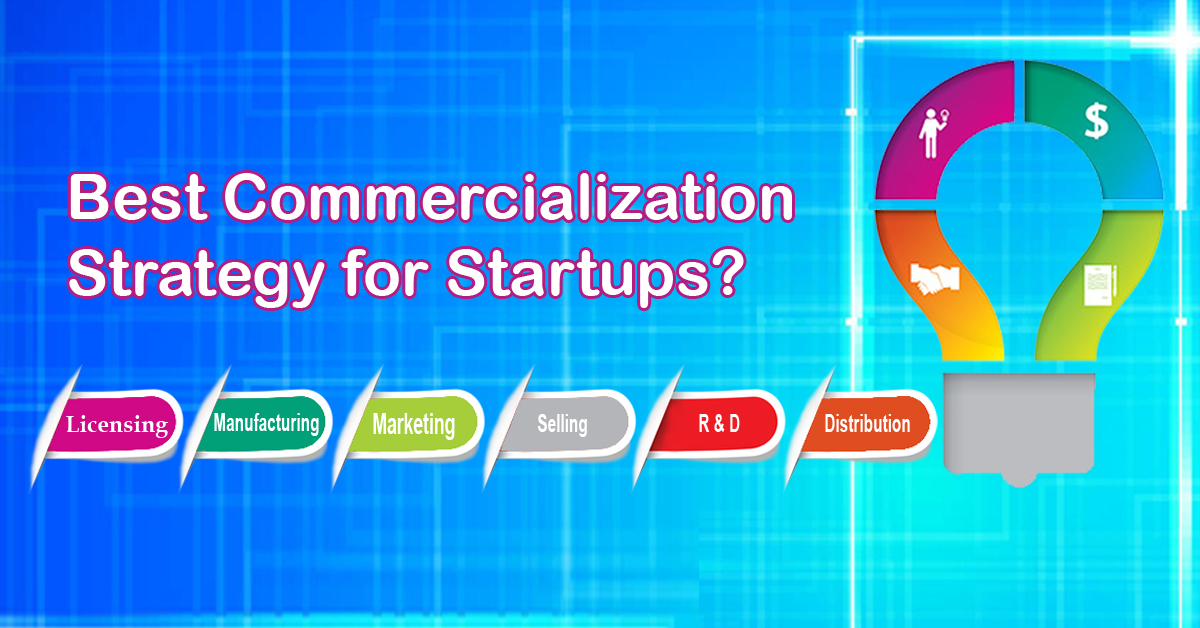What’s the Best Commercialization Strategy for Startups?

Commercialization is the process of turning a new invention or product into a commercial success. This can be difficult for startups, as they often lack the resources and experience necessary to bring their product to market. A startup’s strategy should be aimed at generating revenue and achieving profitability as quickly as possible. In this article, we will explore several strategies that startups can use to increase their chances of success. We will also discuss the benefits and drawbacks of each strategy. So, what’s the best commercialization strategy for startups? Read on to find out!
- Understand your target market: who are you trying to sell your home to?
- Research your competition to see what they are doing and how you can do it better.
- Develop a strong branding strategy
- Create a sales and marketing plan
- Implement effective customer service policies
Licensing
One way to do this is through licensing arrangements with larger companies. Licensing gives startups access to an established customer base and a ready-made distribution network. It also provides a source of revenue without the need to make a large up-front investment in manufacturing or marketing. Furthermore, licensing can help startups to build valuable relationships with industry leaders.
These relationships can provide access to mentorship, capital, and other resources that can help a startup to grow and succeed. In short, licensing is an attractive option for startups seeking to commercialize their products quickly and efficiently. This involves selling or granting the rights to use your invention or product to another company. Licensing can be a great way to generate revenue without having to invest in manufacturing or marketing. However, it can also be risky, as you are giving up control of your product.
Manufacturing
For startups, commercialization is a critical step in achieving success. But with so many different paths to market, it can be difficult to know which strategy is best for your business. When it comes to commercializing a new product or service, one of the most effective strategies in manufacturing. Manufacturing gives start-ups the ability to control production costs, quality, and delivery timelines. It also provides a clear path to scaling up production as demand increases. Perhaps most importantly, manufacturing gives starters the ability to build strong relationships with customers and partners. By directly managing the manufacturing process, startups can ensure that their products meet the highest standards of quality and performance. For all these reasons, manufacturing is the best commercialization strategy for beginners.
Marketing
Marketing is one of the most important aspects of commercialization, as it helps to generate interest in a product or service and bring in customers. There are a number of different marketing strategies that tech startups can use, and the best approach will often depend on the type of product or service being offered. For example, online advertising can be an effective way to reach a wide audience, while targeted direct mail campaigns can be more effective for reaching potential customers who are already interested in what a startup has to offer. Whatever approach is taken, it is important to make sure that marketing efforts are well-targeted and generate a good return on investment.

Selling
Another commercialization strategy that start-ups can use is selling. This involves finding potential customers and convincing them to buy your product or service. This can be a difficult task, as start-ups often have limited resources and experience. However, selling can be a great way to generate revenue and build a customer base. Start-ups can use a number of different selling strategies, such as cold-calling, door-to-door sales, or online marketing. Whatever approach is taken, it is important to make sure that selling efforts are well-targeted and generate a good return on investment. Otherwise, a start-up may find itself quickly running out of money in a commercialization strategy.
Research and Development:
Most starters do not have the resources or brand recognition to effectively market and sell their products or services. R&D allows startups to focus on creating a prototype and perfecting their product or service before entering the marketplace. This gives them a chance to iron out any kinks and develop a product that is truly innovative and competitive. Additionally, by conducting market research, startups can gain valuable insights into consumer needs and preferences. This information can then be used to tailor their product or service so that it meets the specific needs of the target market. R&D is often a critical step in commercialization, and it can give startups a real competitive advantage.
Distribution
Another commercialization strategy that startups can use is distribution. This involves finding potential customers and convincing them to buy your product or service. This can be a difficult task, as startups often have limited resources and experience. However, selling can be a great way to generate revenue and build a customer base. Startups can use a number of different selling strategies, such as cold-calling, door-to-door sales, or online marketing. Whatever approach is taken, it is important to make sure that selling efforts are well-targeted and generate a good return on investment.
The Verdict
Each commercialization strategy has its own set of advantages and disadvantages. The best approach for a startup will often depend on the specific product or service being offered, the resources available, and the target market. However, all strategies should be well-targeted and generate a good return on investment. Otherwise, a startup may find itself quickly running out of money in the trading strategy.




